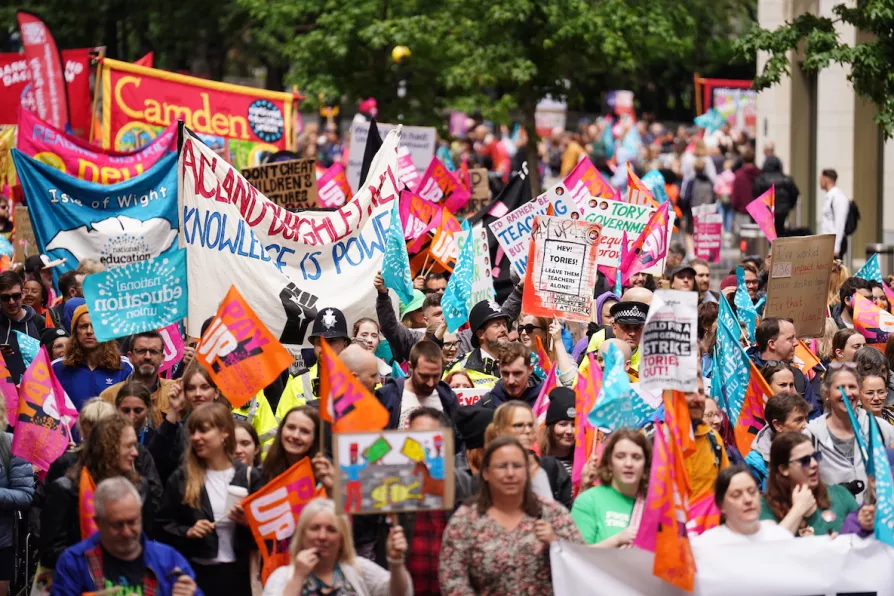Channel 4’s Dirty Business shows why private companies cannot be trusted with vital services like water, says PAUL DONOVAN

 Members of the National Education Union (NEU) take part in a rally through Westminster to Parliament Square, London, as teachers stage walkouts across England in an ongoing dispute over pay. Picture date: Wednesday July 5, 2023.
Members of the National Education Union (NEU) take part in a rally through Westminster to Parliament Square, London, as teachers stage walkouts across England in an ongoing dispute over pay. Picture date: Wednesday July 5, 2023.
WE live in a time of neoliberalism that has turned deeply authoritarian. Those who have power aim to protect it by removing every democratic check upon them. They do this through measures that are legal in form but profoundly undemocratic in content. They want freedom for themselves and coercion for others.
As a result, rights to assembly, freedom of speech, and freedom from surveillance have all been put at risk. And governments have searched in ever more ingenious ways to strip the right to strike of any real meaning.
In the process, they are willing to rip up the agreements of the past: ILO conventions and the European Convention on Human Rights are seen as relics from another age, impediments to the right’s will to power.

Labour must not allow unelected members of the upper house to erode a single provision of the Employment Rights Bill, argues ANDY MCDONALD MP

The people of Palestine need our solidarity in actions not words – trade unionists must give them our full support in their darkest hour, writes DANIEL KEBEDE

The Bill addresses some exploitation but leaves trade unions heavily regulated, most workers without collective bargaining coverage, and fails to tackle the balance of power that enables constant mutation of bad practice, write KEITH EWING and LORD JOHN HENDY KC

It is only trade union power at work that will materially improve the lot of working people as a class but without sector-wide collective bargaining and a right to take sympathetic strike action, we are hamstrung in the fight to tilt back the balance of power, argues ADRIAN WEIR










